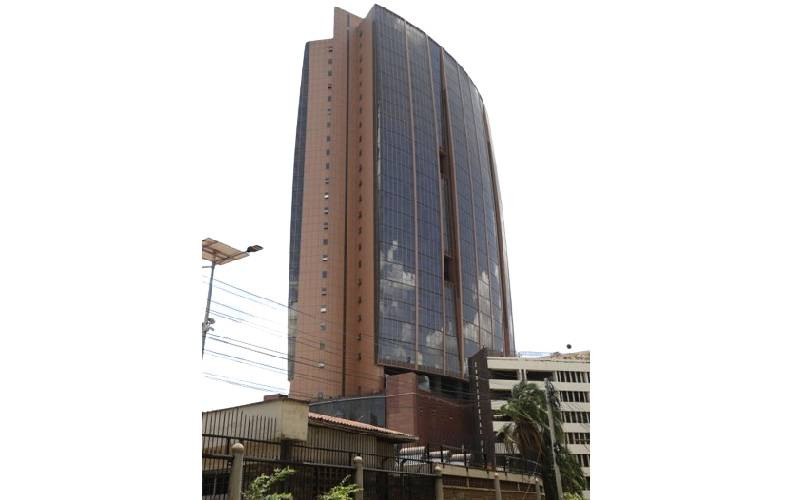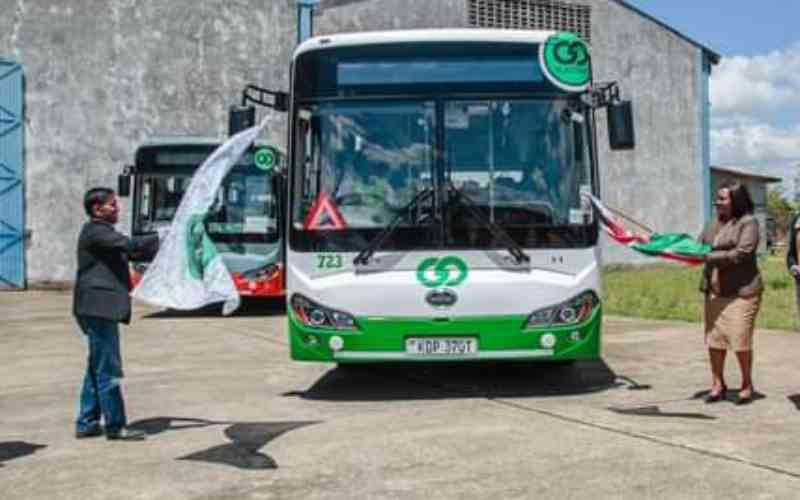European Union carbon permit prices climbed above 50 euros a tonne on Tuesday for the first time, bolstered by tougher EU climate policies and strong demand from investors.
The EU carbon market is the bloc's main tool for curbing greenhouse gas emissions that cause climate change, forcing power plants, industry and airlines running flights within Europe to buy permits when they pollute.
With the bloc striving to meet tougher climate goals - including a new, legally binding target to cut net greenhouse gas emissions by at least 55 per cent by 2030 - the market has found more impetus.
The contract for so-called EU Allowances (EUAs) hit 50.05 euros a tonne on Tuesday, the highest since the carbon market launched in 2005. The benchmark December 2021 contract has soared around 50 per cent since the beginning of the year.
"There's a basket of bullish factors, that is really why we see prices up at these levels," Refinitiv analyst Ingvild Sorhus told Reuters.
These include policy support from the EU's new climate goal, plus increased permit demand from financial investors tempted into the market by soaring prices and a consensus among analysts that prices are likely to climb further in the coming years.
Brussels will this summer present a package of policies to slash emissions across all sectors to meet the target, including reforms to the EU carbon market. That is expected to lead to greater demand for CO2 permits and to make them more scarce.
Sorhus said low European natural gas storage levels had also reduced the potential for coal-to-gas switching to temper demand for CO2 permits.
European gas stores are around 30 per cent full, compared with around 64 per cent this time last year, based on latest available data from Gas Infrastructure Europe.
INDUSTRIAL EMISSIONS
Emissions from power plants and industry covered by the EU carbon market plunged by 35 per cent from 2005 to 2019.
So far, most of those cuts have come from the power sector, as higher CO2 prices have helped make coal-fuelled power plants uneconomical, triggering a switch from coal to gas, which emits less CO2.
But analysts say the EU carbon price now needs to rise to levels high enough to trigger CO2 cuts in industry, where low-carbon alternatives cannot yet compete on cost with traditional fossil-fuel based technologies.
"We've done the easy bit, which is the coal to gas switch in the power sector," said Berenberg analyst Lawson Steele, who expects the EU carbon price to more than double by the end of this year. "Industry now needs to step up and do their bit."
Mark Lewis, Chief Sustainability Strategist at BNP Paribas, said the EU's target to make its economy climate neutral by 2050 means the CO2 price must reach levels that would make hydrogen fuel produced from renewable energy competitive with hydrogen produced from fossil fuels.
"On this basis I think around 90 euros a tonne is a reasonable expectation by 2030," Lewis said.
For industry, the EU's carbon market reforms will likely also mean a reduction in the free carbon permits the EU currently gives industry to protect firms from competitors in countries without a carbon price.
To help European companies stay competitive as they face higher carbon costs, Brussels also plans to introduce a carbon border tariff on imports of polluting goods from abroad.
But with that not expected to come into force for another few years, some companies say soaring CO2 prices are already hitting their businesses.
 The Standard Group Plc is a multi-media organization with investments in media
platforms spanning newspaper print operations, television, radio broadcasting,
digital and online services. The Standard Group is recognized as a leading
multi-media house in Kenya with a key influence in matters of national and
international interest.
The Standard Group Plc is a multi-media organization with investments in media
platforms spanning newspaper print operations, television, radio broadcasting,
digital and online services. The Standard Group is recognized as a leading
multi-media house in Kenya with a key influence in matters of national and
international interest.
 The Standard Group Plc is a multi-media organization with investments in media
platforms spanning newspaper print operations, television, radio broadcasting,
digital and online services. The Standard Group is recognized as a leading
multi-media house in Kenya with a key influence in matters of national and
international interest.
The Standard Group Plc is a multi-media organization with investments in media
platforms spanning newspaper print operations, television, radio broadcasting,
digital and online services. The Standard Group is recognized as a leading
multi-media house in Kenya with a key influence in matters of national and
international interest.









